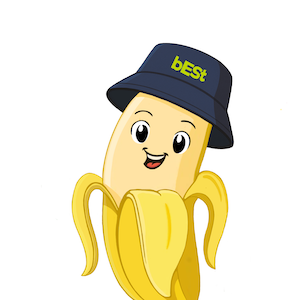
Written by the Faculty of Environment
In the first month of her first year in Environment and Business, a mysterious green poster caught Michelle’s eye.
“It was super vague. I remember, it said: ‘Are you interested in writing or photography or videography?’” Being “gung-ho and excited to throw myself into everything I possibly could,” Michelle showed up to the first meeting.
Little did she know that gathering of a few passionate students would become the beginning of the Radicle — a student-run publication “that highlights and showcases the work of Faculty of Environment students and staff.”
Since then, Michelle has taken on the role of editor-in-chief, a position that channels her enthusiasm for everything awesome happening in the Faculty of Environment.
“Being an Environment student is inspiring because I'm surrounded by individuals who constantly blow me away with their ambition, tenacity and creativity. It's impossible to walk around campus and not bump into someone doing something really cool.”
Eyes on the big picture
Getting involved in some of those “really cool” things, while using the flexibility of her program to pursue a minor in sustainability and explore electives like Latin 101, has given Michelle “the chance to try my hand at a variety of tasks — academic and extracurricular.”
Whether she’s leading the Radicle, working on a co-op term, donning in residence, or serving in her role as the first-ever Waterloo Undergraduate Student Association (WUSA) Sustainability Commissioner, Michelle sees university as an opportunity to grow in all ways — not just academically.
“I’ve met so many smart and hardworking people who have a passion and are using university as a means to an end. I really value that because education is vital, but if you just do your four years and come out with a piece of paper, you’re not really going to get anywhere. The people I’m most inspired by are using school to achieve their actual goals.”

Ticking all the boxes
By diving into a variety of academic and extracurricular experiences, Michelle says she’s discovered her strengths and passions lie at the intersection of environmental education, climate justice, and youth engagement.
Exploring those interests even further through co-op work terms is another way she’ll be collecting experiences to guide her future path.
In her first role as communications assistant for a Member of Parliament, she says, “I ticked off the box of working in government, but I also want to work in private and public corporations and NGOs so I can get some perspective on what I want to do after graduation.”
Embracing your roots
No matter your interests or background, Michelle says everyone is welcome in the Faculty of Environment. That diversity is one of the things she loves most about her faculty — a place that “feels more like a community of like-minded individuals than a huge crowd where students become nameless faces.”
For Michelle, the inspiration to study environment goes back to childhood when, at four years old, she immigrated from Indonesia with her family.
“My background gave me a different perspective on the way that I saw the world around me. I never took anything for granted. What I saw in any Western industrialized nation is this culture of abundance and waste. It really weighed on me that we weren’t trying to protect nature and biodiversity.”
She chose to study Environment and Business to gain a better understanding of how businesses — key drivers of innovation — can play a role in mitigating the climate crisis and creating a more sustainable future.

Strength in diversity
What she sees when she looks around her community in the Faculty of Environment are other passionate people who — despite studying environment from different angles — are “all united by one common goal: to make the world a better place.”
“Everyone's a nerd (in the best way!) about their interests, whether that be divestment, mushrooms, wasps, cycling or plant-based living.”
“There’s definitely the stereotype of the hippie tree-hugger — that exists and that’s totally chill. We love those types of people. But I was surprised by how different everybody is and what interesting and diverse walks of life everyone comes from. There’s no right way to be an Environment student. There’s no set path or archetype you have to fill.”
Discover what to expect during your first year in Environment
Michelle shares what surprised her most in her first year, the differences between high school and university, and how she made new friends and got a lot of free food.
Related articles

How to choose a program in the Faculty of Environment

Drone driver
“I chose Waterloo for the co-op program,” says Pedro, who’s helped York Region map out its fibre-optic network while finishing a Master of Science degree in Geography at Waterloo. “I was able to figure out the types of work I might like to do before I even graduated.”


